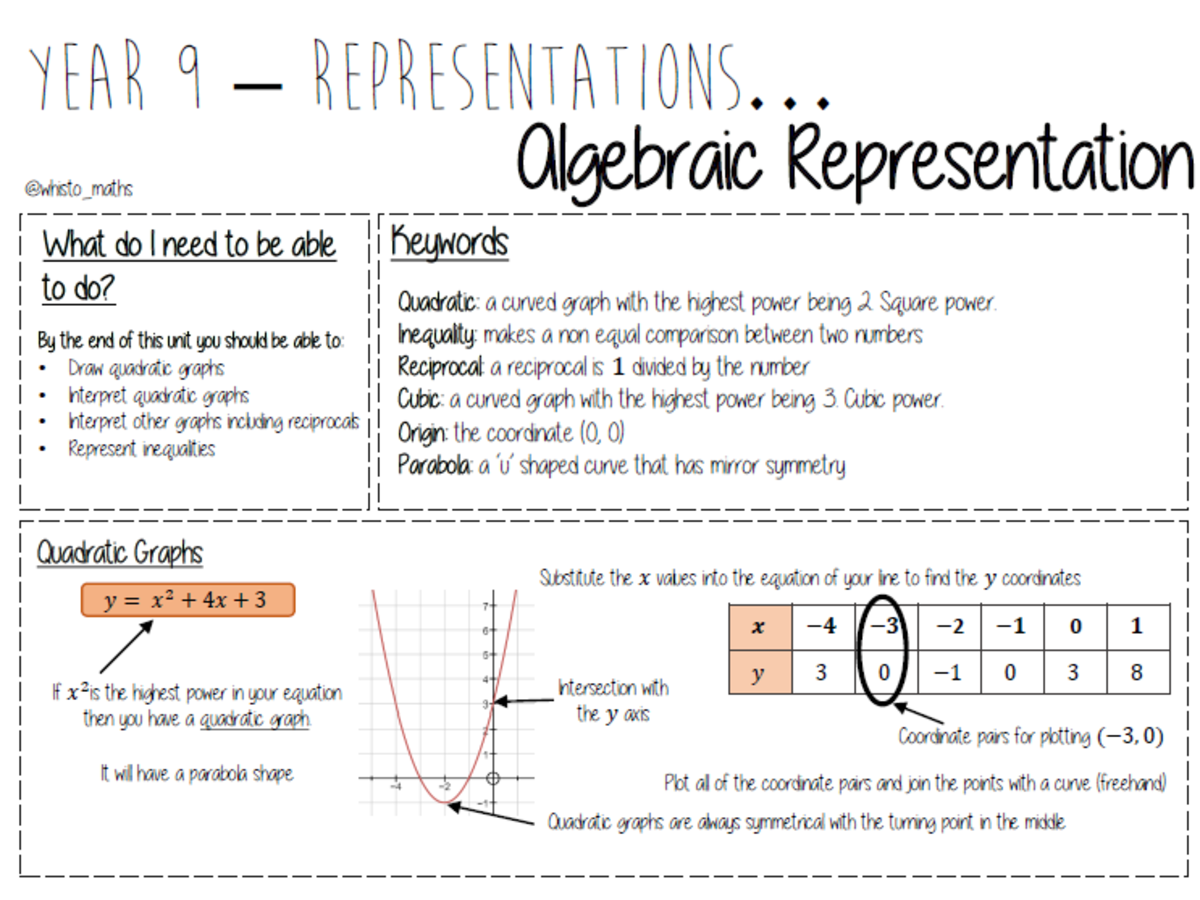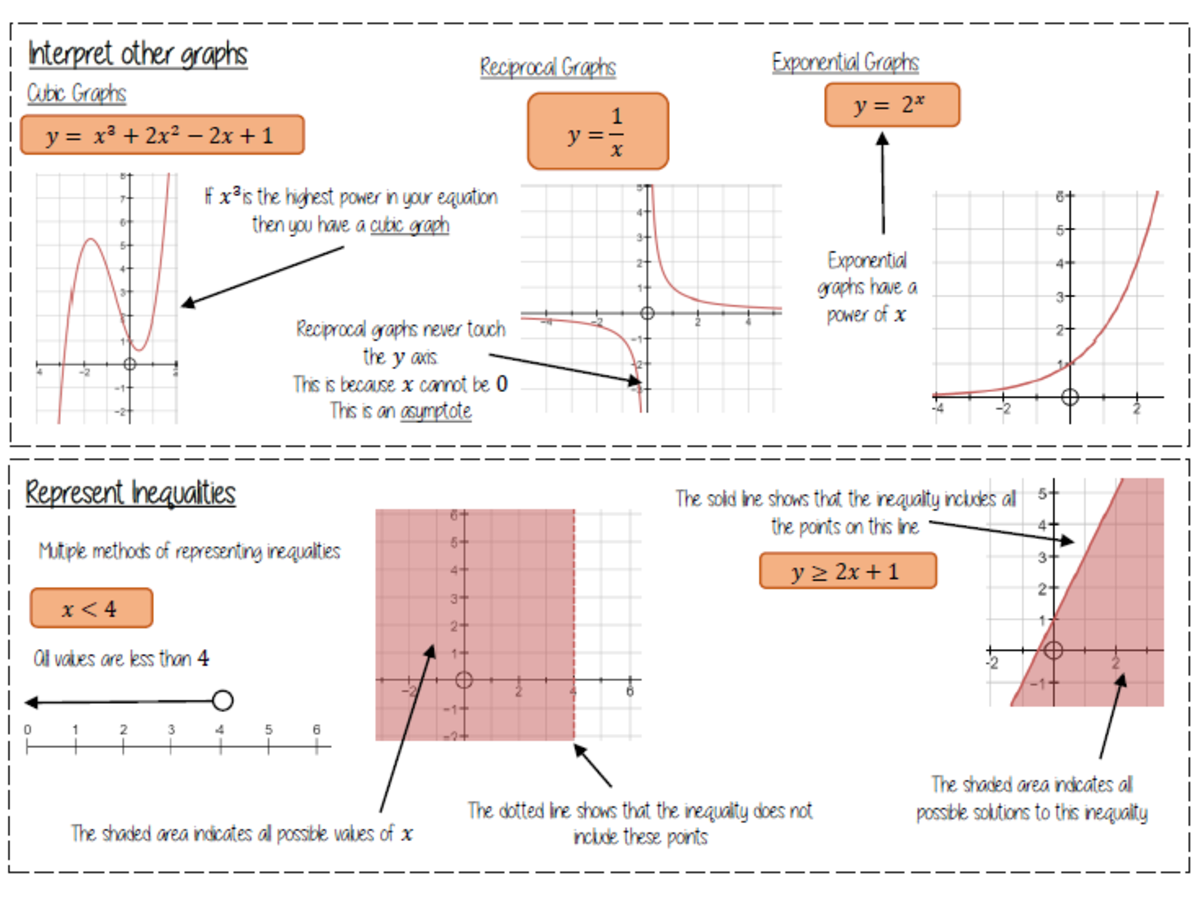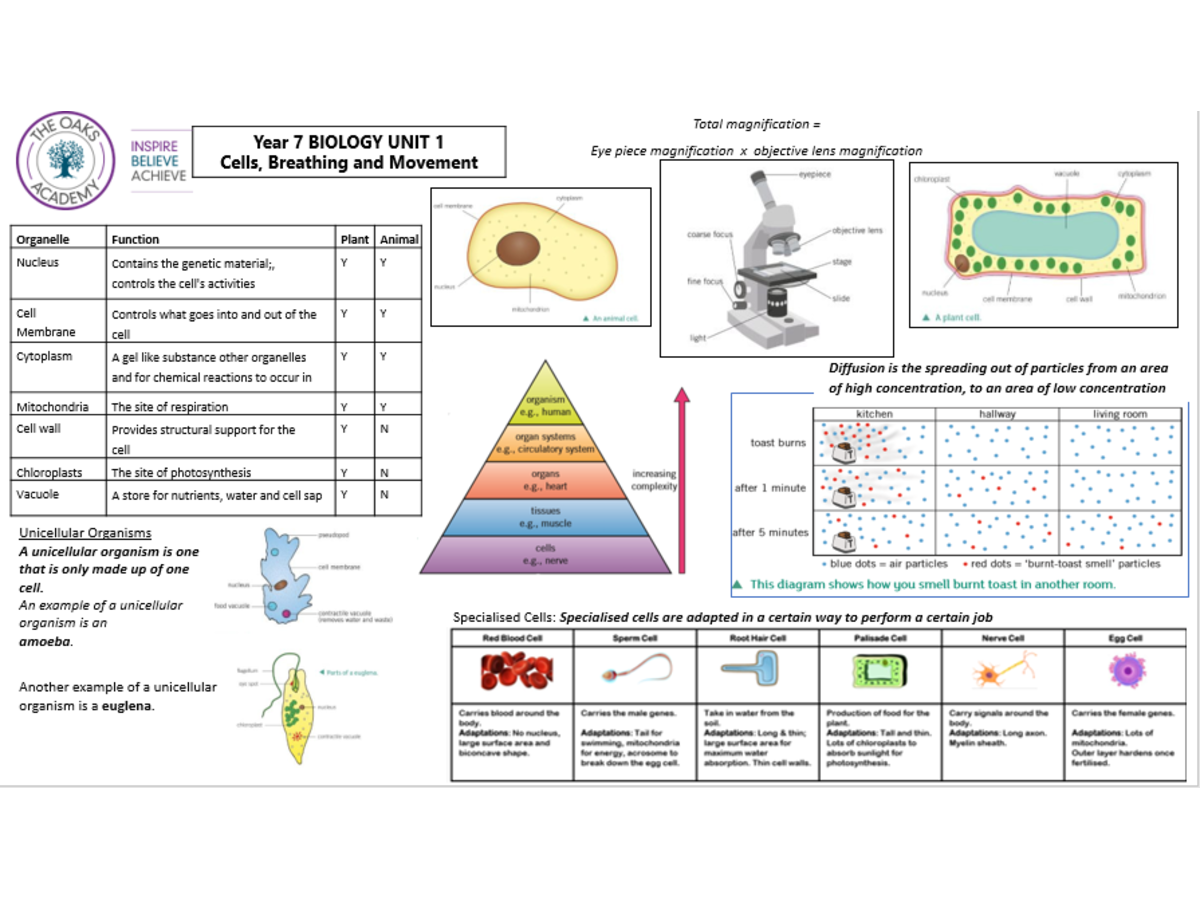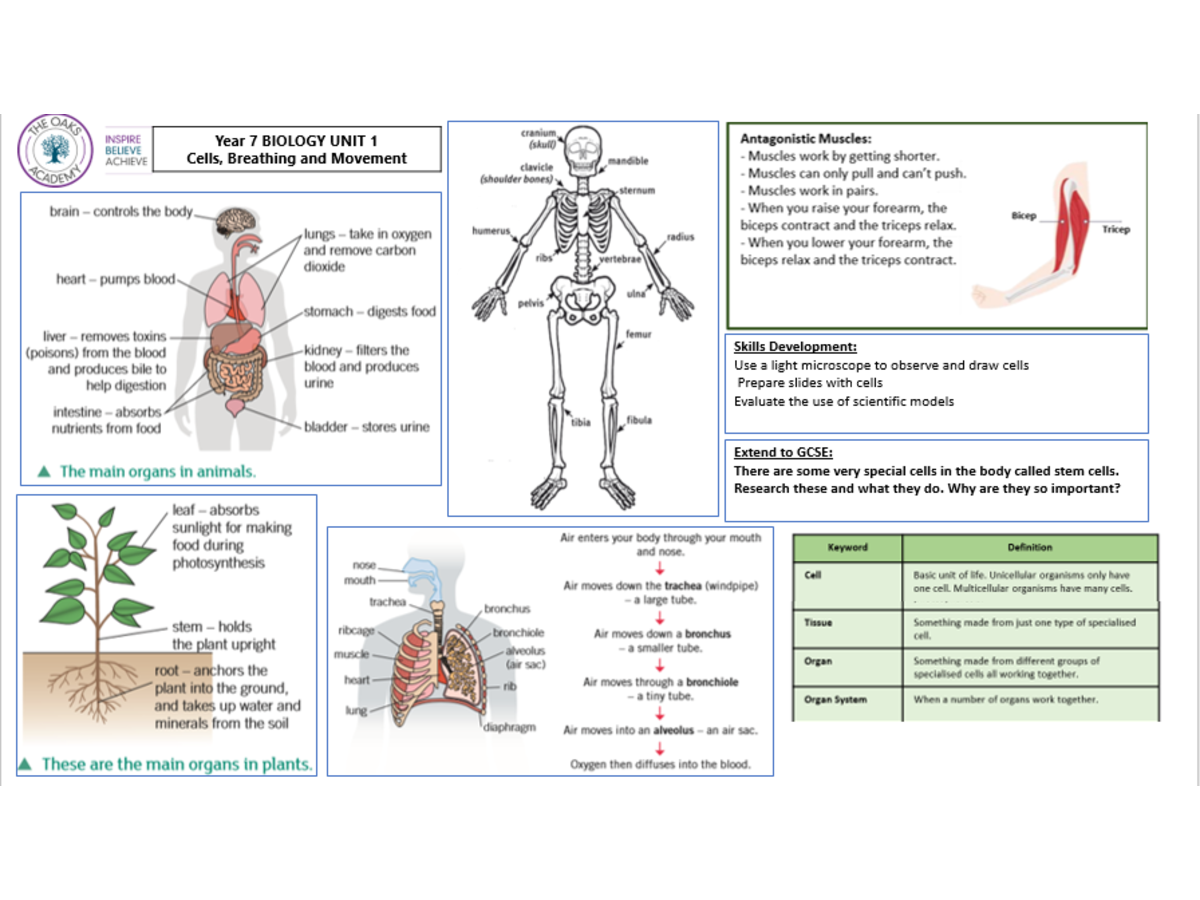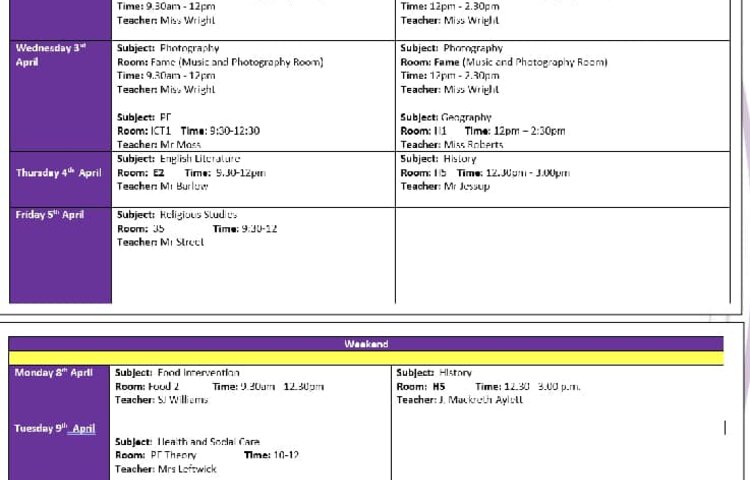Knowledge Organisers
What is a Knowledge Organiser?
It is a document prepared by your teachers that summarises and condenses all the most vital, useful and powerful knowledge on a single page, that you need to remember to be successful.
If you use this document to help you when you study or revise it will help you to remember the key information and learn important subject specific words which will help you in your exams and assessments.
By using the Knowledge Organisers at home to support you with study it will help you when back in the classroom. All Knowledge Organisers can be found at the front of each topic in your class exercise books. Below are some examples.
How to use a Knowledge Organiser
- Write out all the key words for the topic and find out what they mean, writing the definition next to the word. You then need to place each of the words in a subjects related sentence.
- Create a Knowledge quiz that your teachers could use for your class on this topic. You must include a minimum of 20 questions.
- Answer any Dig Deeper questions that have been posed by your teacher. Write in full sentences and include as much subject specific detail as possible.
- Clock Revision (see further information).
- Take a well known tune or song and rewrite the lyrics to the song, so that the song is about your topic.
- Write out the alphabet – For each letter you need to write a sentence beginning with that letter about your topic.
- Pictionary – Draw images for key information that will help you to remember through image association.
- Create flash cards for this topic – A flash card is a card that condenses the key information further. You will need to cut up paper / card into A6 sections and on each card write the heading and small amount of information underneath. You may also wish to include key questions.
-
Memory Test:
- Look at the knowledge organiser for 6 minutes but only look do not note anything down.
- On a piece of paper write down as much as possible as you can remember in 5 minutes
- Then spend another 4 minutes looking at the information.
- On the same piece of paper write down as much extra as possible in 3 minutes
- Then spend another 2 minutes looking at the information
- On the same piece of paper write down as much extra as possible in 1 minute
- What have you missed?
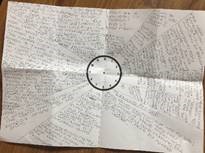
Draw a clock in the centre of the page, and divide the page up into 12 sections (see image above) – in real live time each 5 minutes write in the sections detailed information about knowledge need for this topic. At the end of 60 minytes you should have all 12 sections complete. You will then use the remaining time to research and find out more information which you can add to these sections in red pen. Use the internet for this if possible.
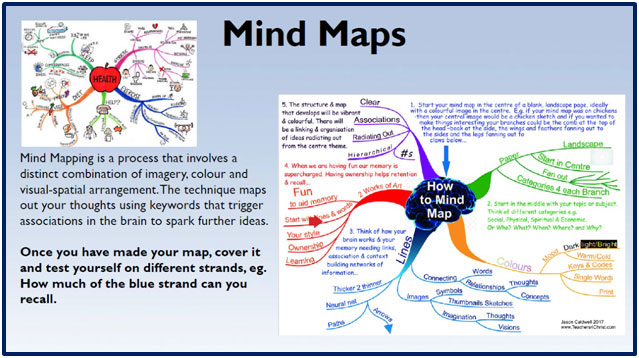
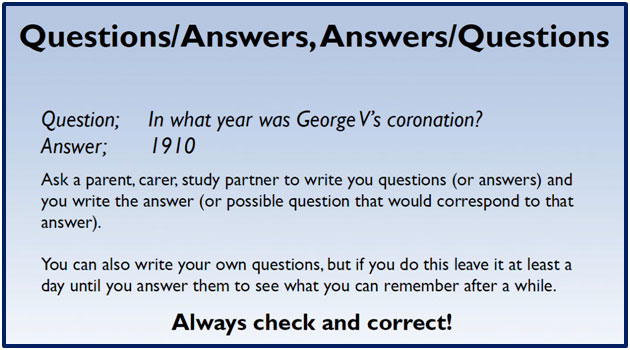
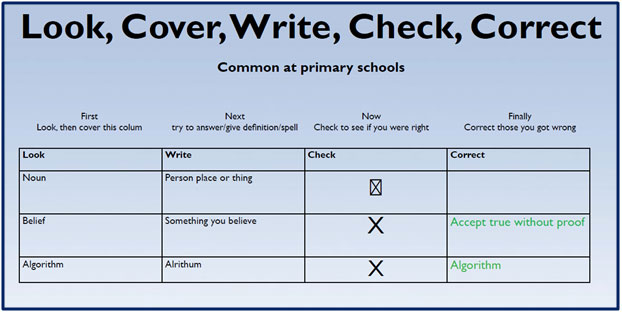
Year 7 - Art
Year 7 - Computing
Year 7 - Design and Technology
Year 7 - Drama
Year 7 - Geography
Year 7 - History
Year 7 Maths Knowledge Organisers
Year 7 - Music
Year 7 - PE
Year 7 - Science
Year 8 - Art
Year 8 - Drama
Year 8 - Design Technology
Year 8 - English
Year 8 - Geography
Year 8 - History
Year 8 - Music
Year 8 - PE
Year 8 - RE
Year 9 - Design Technology
Year 9 - English
Year 9 - Food Technology
Year 9 - Geography
Year 9 - History
Year 9 Maths Knowledge Organisers
Year 9 - Music
Year 9 - PE
Year 9 - Science
Year 10 - Art
Year 10 - Business - Enterprise and Marketing
Year 10 - Creative Imedia
Year 10 - Drama
Design Technology
Year 10 - Engineering
English Lit
English Language
Food Technology
Year 10 - Geography
Year 10 - History
Year 10 - Maths
Year 10 - Photography
Year 10 RE
Year 10 - Spanish
Year 11 - Creative IMedia
Design Technology
English Lit
English Language
Food Technology
Year 11 - Geography
Year 11 Maths
Year 11 - Photography
Year 11 Spanish

